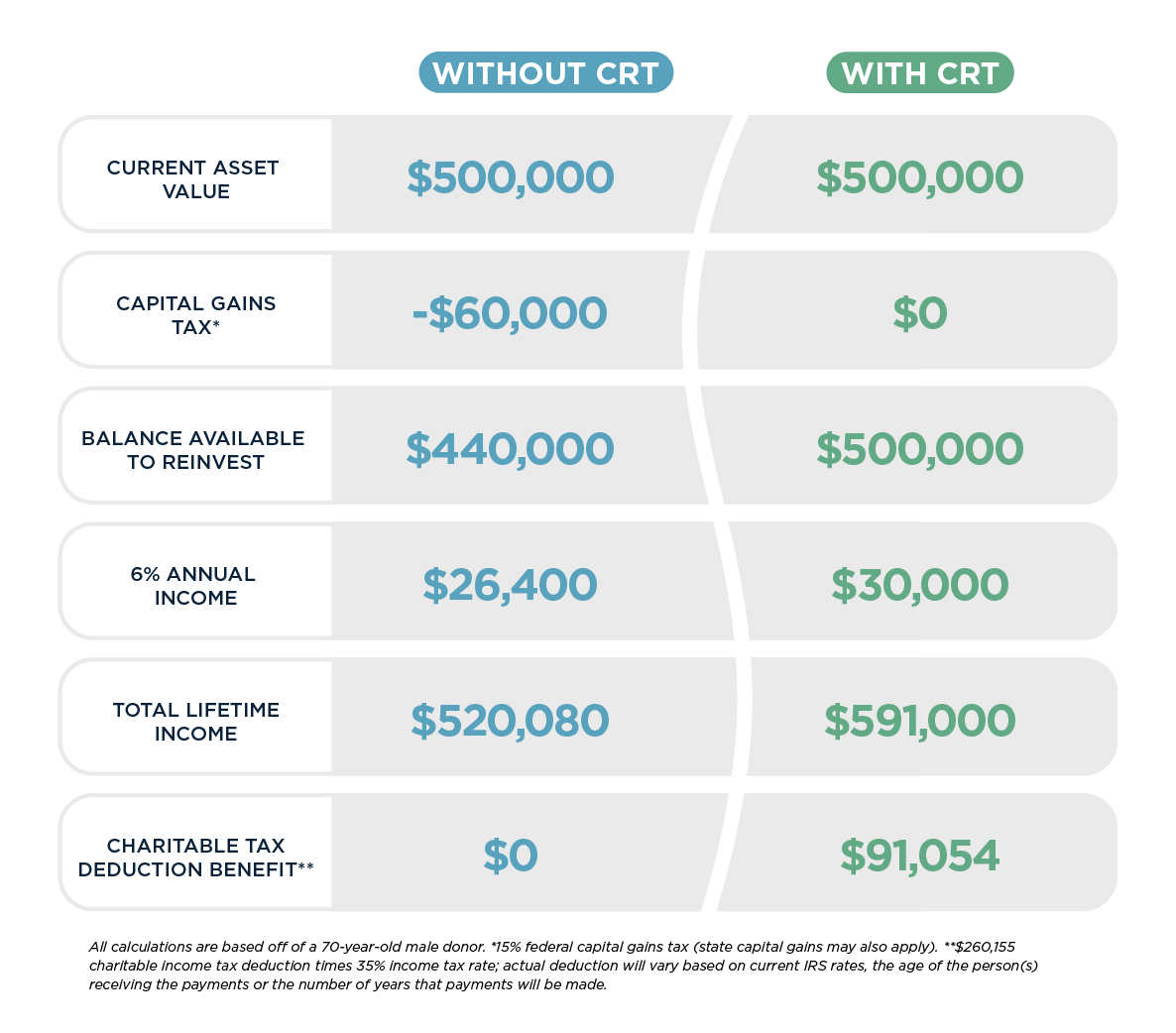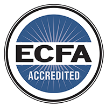Charitable Remainder Trust

Connect With Our Experts
Charity. Income. The best of both worlds.
A charitable remainder trust provides lifetime income to one or more recipients. You receive an income tax deduction and may bypass capital gain taxes. At the termination of the trust, the remaining funds are used to benefit the ministry of your choice.
Key Benefits

Enjoy Predictable, Guaranteed Income
Eliminate uncertainty with guaranteed income for you and your beneficiaries.
Enjoy a Secure Retirement
Take the stress out of retirement with guaranteed income for life.
Support Ministry After You Pass
Create a lasting impact with a charitable gift from your estate.
Preserve Your Assets
Assets in the trust are exempt from certain taxes, preserving significant value in your estate.Start Here
Our experienced staff will guide you through the process of making a gift that benefits ministry and provides income.
CONNECT WITH US
Virtually, by phone or in-person, our giving professionals are ready to help.
CREATE YOUR CRT
We’ll gather information and draft documents to help you make your gift. Fund your trust and choose a ministry to benefit. Decide if you prefer a fixed or fluctuating payment.
EARN INCOME AND DO GOOD
Receive a charitable tax deduction plus income for yourself and/or loved ones for life, or for a set time period. Feel good knowing your gift will support ministry at your passing.
Gift Example
Mr. Roberts and Mr. Harrison are both 70 years old, and they each decide they want to make a gift to their favorite Southern Baptist ministries with current assets of highly appreciated securities equaling $500,000. Because Mr. Roberts does not create a charitable remainder trust, he will likely owe capital gains taxes on the sale of his securities, leaving fewer funds to invest into income-producing securities. Because Mr. Harrison created a charitable remainder trust and placed his securities in it, he is able to avoid the immediate capital gains tax associated with selling the asset, has more money to invest into income-producing securities, receives a charitable income tax deduction, secures future distributions to himself and designates a significant gift to charity.

A Charitable Trust May Be Perfect If:
You want to increase your annual income.
You want an immediate charitable tax deduction.
You need a guaranteed income stream for yourself or a loved one.
You want to split your assets between heirs and ministry.
You want to diversify investments without incurring substantial capital gains taxes.
Go Deeper
Tax Impacts
Upon funding, you receive a charitable tax deduction, and then there’s an annual tax component for the payments that are distributed out to you. If you fund with appreciated securities (stocks, mutual funds, etc.), you avoid the immediate capital gains tax associated with the sale, but you are taxed to various degrees on the payments made to you, deferring the capital gains tax.
- Reduce Taxes with a Charitable Income Tax Deduction – If you use appreciated assets to fund the trust, up to 30% of your adjusted gross income (AGI) may be deducted in the current tax year. By funding your CRT with cash, you can use a charitable deduction of as much as 60% of your AGI.
- Defer Capital Gains Tax – A CRT allows you to spread out the tax burden over time when you choose to fund your trust with appreciated assets.
- Reduce or Eliminate Estate Taxes – A charitable remainder trust is irrevocable. Therefore, assets used to fund a CRT may be removed from your estate for estate tax purposes.
- Potential Gift Tax Consequences – If you choose to name a beneficiary aside from yourself or your spouse for the CRT income, there is a taxable gift upon funding the CRT, and the value of the gift is reduced to the present value of future income payments from the trust.
- Unitrust Payouts Are Taxable – You, or whoever you have selected as a non-charitable beneficiary, must pay tax on the income stream each year. The income tax is divided into four tiers, which apply one after the other, once the higher tier of income is exhausted. First tier: ordinary income and qualified dividends; second tier, capital gains (short-term, personal property, depreciation, long-term gain); third tier other tax-exempt income; and fourth tier, return of principal.
Fees
WatersEdge charges an administration fee of 1.05%.
Minimums
$100,000 funding minimum.
Investment Options
WaterEdge is trustee and has investment discretion, and we perform an asset allocation to determine the appropriate investment selections. WatersEdge considers the return requirement as well as the risk factors (time horizon, percent of distributions, dependence on distribution, risk tolerance, etc.) and other specific issues of each trust and trustor.
What Assets Can Fund This Gift?
- Cash
- Publicly traded stocks and bonds
- Mutual funds
- Real estate
- Many privately held investments
The ideal vehicle to fund a CRUT is appreciated assets; that can be appreciated real property or appreciated securities.
FAQ
1. What is the difference between a Charitable Remainder Annuity Trust and Charitable Remainder Unitrust?
A charitable remainder annuity trust pays a fixed percentage (at least 5%) of the trust’s initial value every year until the trust terminates. The donor cannot make additional contributions to a CRAT after the initial contribution.
A charitable remainder unitrust pays a fixed percentage (at least 5%) of the trust’s value as determined annually. Additional contributions can be made to unitrusts.
2. How long can a remainder trust provide income for the donor(s) or heir(s)?
Donors can name themselves or someone else to receive a potential income stream for a term of years, no more than 20, or for the life of one or more non-charitable beneficiaries, and then name one or more charities to receive the remainder of the donated assets.
3. What is a Testamentary Charitable Remainder Trust?
Donors can create a charitable remainder trust at their death through instructions in their last will and testament or revocable trust. This provides for loved ones (heirs) for the term of the trust, with the remainder given to charity.
Create Your CRT Today
Review Your Giving Options
When you give generously, the details make all the difference. It’s important to keep in mind your family situation, tax considerations and charitable goals.
Make the right choice with a simple side-by-side comparison.




